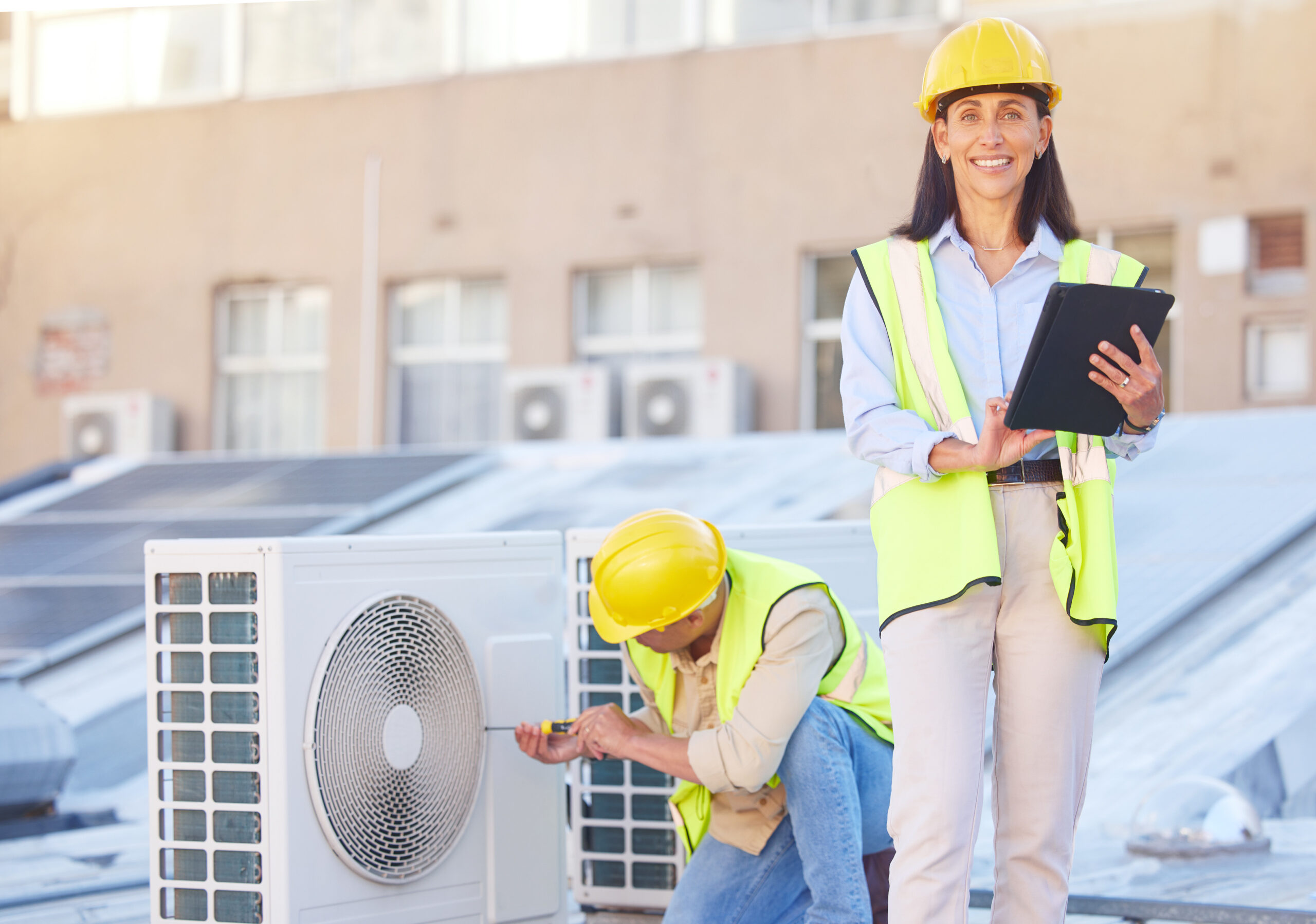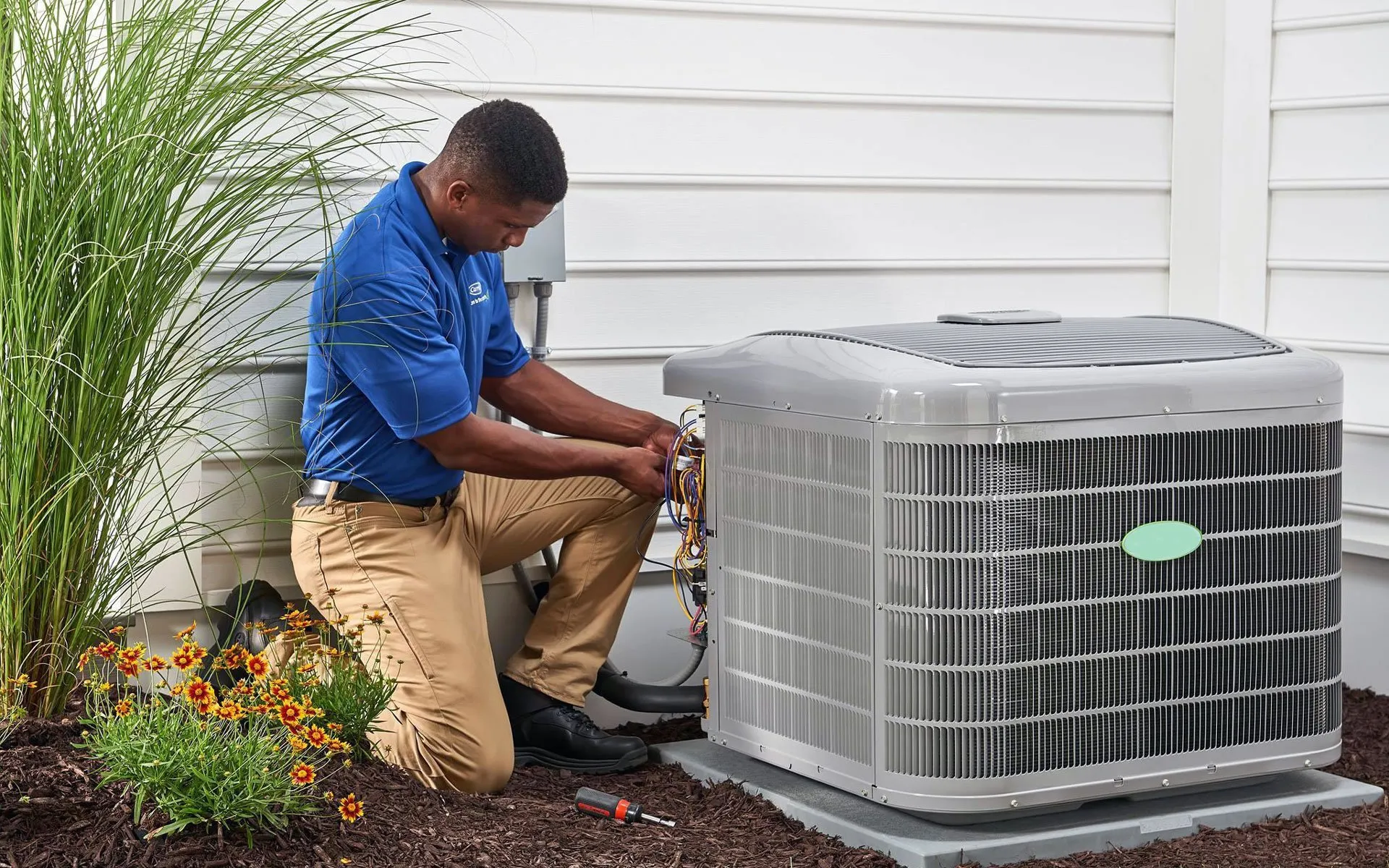The Ultimate Breakdown of ductless mini splits vs Central Heating Systems
The Ultimate Breakdown of ductless mini splits vs Central Heating Systems
Blog Article
Picking In Between a Warmth Pump and Furnace: Secret Factors To Consider for Your A/c Requirements
When evaluating home heating options for a/c needs, the choice in between a heatpump and a heating system can be complicated. Each system uses unique benefits tailored to details environments and energy performance goals. Understanding these distinctions is necessary for making an enlightened selection. Key elements such as installation expenses and ecological effect further complicate the selection process. Which alternative truly lines up with one's comfort and sustainability preferences? The adhering to sections will certainly check out these factors to consider in detail.
Comprehending Heat Pumps: Exactly How They Function and Their Benefits
While lots of home owners consider different heating alternatives, comprehending exactly how warmth pumps feature and their advantages can substantially influence their choice. Warmth pumps operate by moving warm instead than generating it. In the winter season, they remove heat from the outdoors air or ground and move it inside, while in the summer season, they reverse this procedure, cooling down the home by expelling heat outside. This double capability makes them functional for year-round environment control.One of the main advantages of warm pumps is their energy effectiveness. They utilize significantly less electrical energy contrasted to standard heating systems, possibly resulting in reduced utility bills (heat pump replacement ooltewah tn). Furthermore, warm pumps have a smaller sized carbon impact, making them an ecologically pleasant selection. They likewise need much less upkeep than conventional systems, adding to long-lasting cost savings. Generally, recognizing the auto mechanics and advantages of heatpump can assist house owners make educated choices regarding their home heating and cooling down needs
Checking Out Heating Systems: Kinds, Procedure, and Benefits
Heating systems are available in numerous types, including gas, electrical, and oil designs, each with unique functional systems. Recognizing these distinctions is vital, as they impact efficiency and heating efficiency. Additionally, heaters supply many benefits, such as constant warmth output and dependability in cooler climates.
Kinds of Furnaces
Heating unit can vary significantly in style and operation, with heating systems being a prominent selection amongst house owners. There are several types of heating systems, each using different fuel resources and modern technologies. Gas heaters are common, leveraging gas to create warm effectively. Electric heating systems, on the other hand, use electric resistance to produce warmth, commonly favored for their straightforward setup. Oil furnaces, while much less common, work in locations with restricted gas gain access to (heat pump installation ooltewah tn). Additionally, condensing furnaces take full advantage of power efficiency by recording and reusing exhaust gases. Each kind operates via a system of warmth exchangers and ductwork to distribute warm air throughout a home. Recognizing the differences in between these furnace types is vital for educated HVAC choices
Advantages of Furnaces
For house owners seeking reliable heat during cool months, the benefits of heaters are substantial. Heating systems offer consistent home heating, ensuring also temperatures throughout the home. They are especially efficient in extreme cool, typically outshining heatpump in frigid problems. Numerous kinds, including gas, electric, and oil heaters, use adaptability to fulfill varied demands and preferences.Furnaces additionally tend to have lower initial setup prices compared to heatpump, making them a much more available choice for several. Their robust design adds to a longer lifespan, with numerous systems lasting over 15 years with correct maintenance. Furthermore, contemporary furnaces are commonly outfitted with advanced technology for enhanced effectiveness, which can result in lowered energy costs. On the whole, heaters stay a reliable selection for reliable home heating.

Power Performance: Contrasting Warmth Pumps and Furnaces
When comparing energy effectiveness between heatpump and furnaces, the Seasonal Energy Efficiency Ratio (SEER) plays a necessary function in figuring out performance. Furthermore, a functional price analysis reveals the lasting monetary effects of each system. Recognizing these aspects can assist home owners in making educated decisions about their home heating solutions.
Seasonal Power Effectiveness Ratio
Energy efficiency plays a necessary function in the decision-making process between heatpump and heaters, particularly when thinking about the Seasonal Energy Efficiency Proportion (SEER) This metric steps the cooling effectiveness of heatpump over a whole cooling period, giving a standardized means to evaluate performance. Higher SEER ratings indicate higher power performance, translating to reduced power consumption and lowered utility expenses. In contrast, furnaces are normally assessed using the Yearly Fuel Usage Effectiveness (AFUE) rating, which mirrors home heating efficiency. When contrasting these 2 systems, home owners should focus on SEER ratings for heat pumps, as they directly effect overall energy financial savings and environmental sustainability. A thorough understanding of SEER can especially affect the long-lasting satisfaction and cost-effectiveness of the selected HVAC remedy.
Functional Expense Analysis
Comprehending the functional expenses associated with heatpump and heating systems is crucial for house owners evaluating their alternatives. Warm pumps generally provide greater power effectiveness, transforming electrical energy right into heat with minimal waste. This leads these details to lower regular monthly energy costs, particularly in modest environments. On the other hand, typical heating systems, particularly gas models, may have lower ahead of time expenses however can incur higher operational expenses over time as a result of fuel prices and effectiveness ratings.Moreover, warmth pumps can operate as both heating and cooling down systems, possibly decreasing the requirement for separate cooling and heating systems. While initial investments for heatpump might be greater, their lasting savings in energy performance can make them a more economical choice for several families. Careful analysis of regional energy rates is important to figure out the best choice.
Installation Expenses: What to Anticipate for each and every Heating System
Installment expenses for heating unit can differ substantially between heat pumps and heaters, influencing property owners' choices. Warm pumps typically have higher upfront setup costs, usually ranging from $3,500 to $8,000, depending upon the unit dimension and intricacy of setup. This consists of the outdoor device, indoor handling system, and needed ductwork adjustments. Alternatively, heaters tend to have reduced first costs, averaging between $2,500 and $6,000, which can be appealing for budget-conscious home owners. Installment expenses can increase if comprehensive ductwork is required.Moreover, the choice of gas type for heating systems-- natural gas, lp, or electric-- can additionally impact installment costs. While heatpump offer energy effectiveness, their preliminary investment might hinder some customers. Ultimately, examining installation costs along with long-lasting savings and efficiency will certainly assist homeowners in making educated decisions about their heating systems.
Climate Considerations: Which System Does Much Better in Your Area
Exactly how do environment problems affect the performance of heating unit? The efficiency of heat pumps and furnaces can vary substantially depending on the local environment. In moderate environments, heat pumps stand out by successfully moving warmth from the outside air, making them an energy-saving option. Their performance reduces in incredibly cool temperatures, where they might struggle to remove adequate warmth. Conversely, furnaces, particularly gas designs, provide constant and trustworthy warmth regardless of exterior conditions, making them more suitable in colder regions.In areas that experience milder winters months, heatpump can operate properly year-round, supplying both cooling and heating. In comparison, areas with severe wintertimes often gain from the effectiveness of furnaces. Inevitably, understanding the regional climate is necessary when deciding in between a heatpump and a furnace, as it straight affects their operational performance and total efficiency.
Upkeep Requirements: Long-Term Look After Heat Pumps vs. Furnaces
While both heatpump and heating systems need routine upkeep to ensure peak efficiency, their details requirements and treatment routines vary considerably. Heaters commonly require less frequent interest, with annual assessments being adequate to look for gas leakages, clean filters, and assess overall capability. Their less complex style usually enables for straightforward repairs.In contrast, warm pumps require biannual upkeep due to their double duty in home heating and cooling. This consists of cleansing coils, checking cooling agent levels, and making certain that both the interior and outside units function at their ideal. Furthermore, heatpump maintenance usually involves even more detailed components, making professional maintenance essential.Neglecting upkeep can cause reduced efficiency and raised power costs for both systems. Inevitably, property owners ought to take into consideration these lasting treatment demands when picking in between a heatpump and a heater, as aggressive maintenance can prolong the lifespan and efficiency of either system significantly.
Ecological Influence: Picking a Sustainable Home Heating Choice
The visit their website environmental effect of heating unit is a crucial assessment for house owners seeking lasting choices. Heatpump are generally more energy-efficient than typical furnaces, as they transfer warmth as opposed to generate it, considerably reducing carbon exhausts. By utilizing eco-friendly power resources, such as geothermal or air-source heat pumps, home owners can even more lessen their ecological footprint.On the various other hand, gas furnaces send out greenhouse gases and add to air contamination, though they frequently give higher warmth output. Nonetheless, advancements in technology have actually resulted in the advancement you can try this out of high-efficiency furnaces that decrease emissions.Ultimately, choosing a furnace includes evaluating performance versus environmental influence. Property owners are urged to assess neighborhood energy sources and rewards for renewable systems, guaranteeing a choice that aligns with both individual comfort and environmental duty. The choice influences not just instant convenience however likewise long-term sustainability and environmental health and wellness.
Frequently Asked Questions
Exactly How Lengthy Do Warm Pumps and Furnaces Normally Last?
The life expectancy of heatpump typically varies from 15 to twenty years, while furnaces can last in between 15 to thirty years. Regular upkeep considerably influences their durability and performance in providing heating options.
Can I Utilize a Heat Pump in Exceptionally Cold Climates?
Heatpump can run in exceptionally cold environments, yet their effectiveness reduces as temperature levels decrease. In such problems, supplementary home heating resources might be necessary to preserve comfortable indoor temperature levels and ensure peak efficiency.

What Is the Noise Degree of Warm Pumps Versus Furnaces?
The sound levels of heatpump and heating systems vary considerably. Generally, warm pumps run more silently than traditional furnaces, making them better for those sensitive to sound, while heating systems might generate louder operational sounds during heating cycles.
Are Heat Pumps Suitable for Both Cooling And Heating?
Heatpump are without a doubt suitable for both heating & cooling (furnace replacement). They function by transferring warmth, supplying reliable temperature level control year-round, making them a flexible selection for property owners looking for an all-in-one HVAC service
What Dimension Heating Unit Do I Required for My Home?
Figuring out the suitable size furnace for a home calls for assessing elements such as square footage, insulation top quality, regional environment, and the home's design. Consulting an expert can guarantee an accurate analysis and perfect convenience. Heat pumps generally offer higher energy performance, transforming electric energy right into warm with marginal waste. In moderate climates, heat pumps excel by successfully moving warmth from the outside air, making them an energy-saving option. Conversely, heaters, especially gas designs, give reputable and consistent warm no matter of outdoor problems, making them better in colder regions.In locations that experience milder winters, warm pumps can run successfully year-round, supplying both home heating and air conditioning. Warmth pumps are generally extra energy-efficient than typical heating systems, as they move heat instead than generate it, substantially lowering carbon emissions. By utilizing sustainable power sources, such as geothermal or air-source warm pumps, home owners can further lessen their eco-friendly footprint.On the other hand, natural gas heaters emit greenhouse gases and contribute to air contamination, though they often give higher warmth result.
Report this page